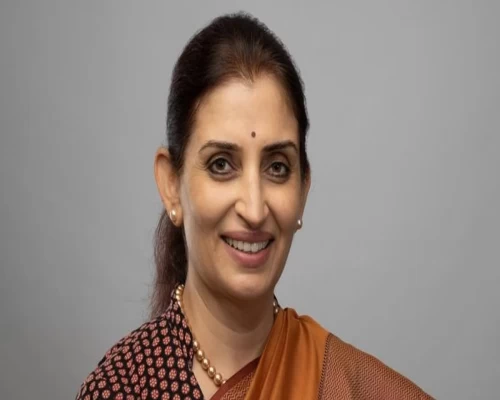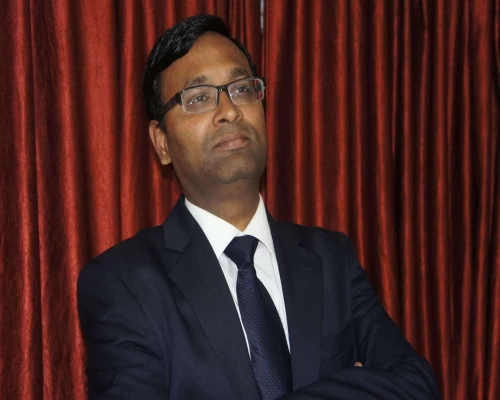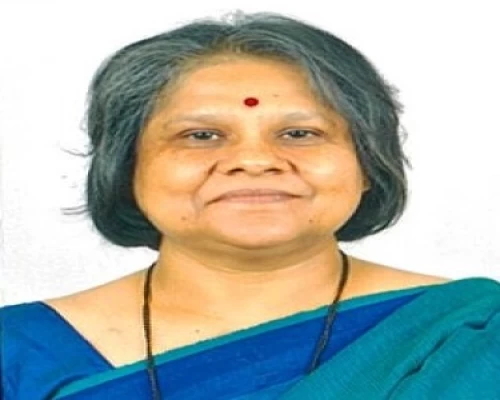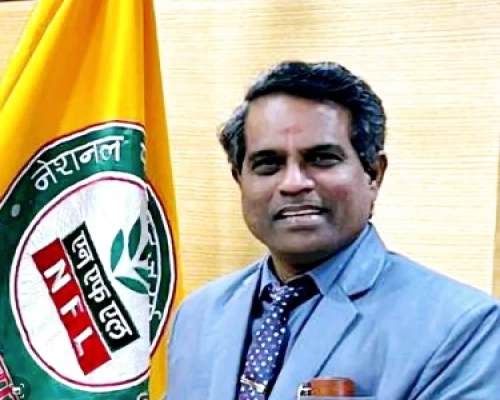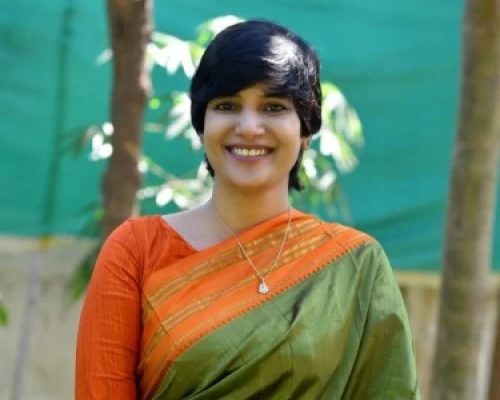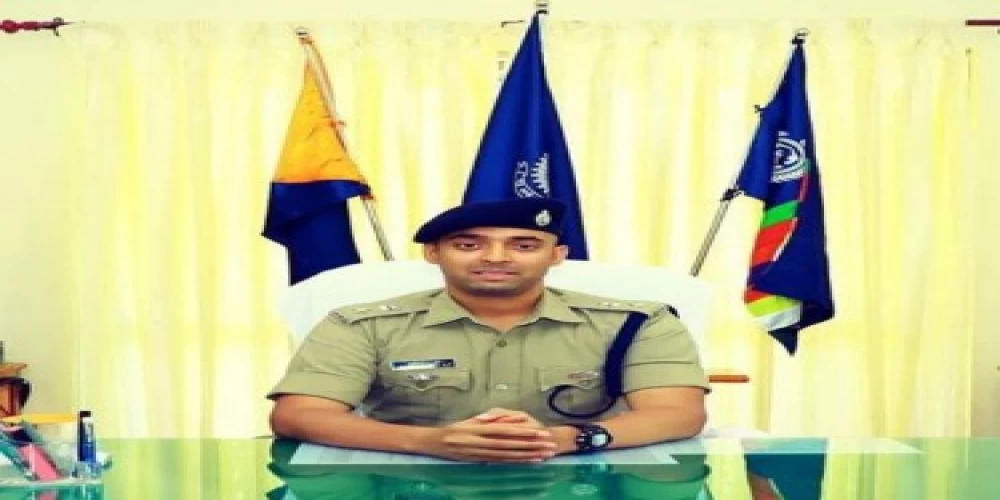
Civil Services come with multifarious challenges and opportunities to serve the people and the nation. “When you are in Civil Services, you have to respond to the situation and you are not just supposed to react. You have to take decisions considering all the facts and having a balanced approach,” said IPS officer Karthikeyan G, currently posted as the SP, Hamirpur, Himachal Pradesh, in an interview to Vigya Dwivedi of Bureaucrats India. Here go the edited excerpts:
From dentistry to Civil Services – how was the transition?
It was not a major ecosystem change for me. Though I had the option of going abroad after completing my graduation in dentistry, I decided to prepare for Civil Services. Since my father – Shri K B Gokulachandran -- was also an IPS officer of 1977 batch, his commitment towards his duty always inspired me to go for the Civil Services. In the first attempt, I missed it by two marks. I felt that it is my destiny and I should definitely work harder to achieve it.
So you always wanted to be an IPS or IAS was also your choice? How has your journey been so far?
IAS was never my first choice. I always wanted to serve either as an IPS or an IFS officer. I have really enjoyed my journey of six years so far as an IPS officer. I was allocated Kerala cadre initially. Lots of challenges came along where I got many opportunities to act and learn new things. During the Sabarimala incident in December 2018, maintaining law and order in the temple premises was a major challenge, which I feel I handled successfully.
Also, during an investigation in Kerala, I was recognised for my work and received Batch of Honour for my work. Other than that, I would also mention my experience during Covid-19 pandemic when I had the responsibility to control the movement of people in bordering areas. My team in Una in Himachal Pradesh was successful in bursting a drug racket of around Rs 1.5 crore, which is another achievement. All these small achievements keep adding to my experience and I shall cherish them forever.
Youth in Himachal Pradesh, Punjab and Haryana are abusing drugs. How to address the challenge?
The two major areas we need to focus on are awareness creation and enforcement. Enforcement involves gathering intelligence and collecting information on drug modules and drug rackets followed by strong steps towards bursting them. Awareness is one thing where we all need to work together. Awareness and education on harmful effects of drugs need to be told to vulnerable sections of the society with the help of government agencies and common citizens. Rehabilitation system needs to be strengthened to prevent youth from returning to drugs. Also, more and more employment opportunities should be created to keep youths engaged in productive activities so that they can align themselves with the development happening across various sectors.
What aspect of your job do you cherish the most?
What I cherish the most about my job is the fact that I get to listen to people’s problems and can actually take action to solve them. This I feel is the most satisfying and cherishable aspect of this uniform. Our experience during the Corona crisis has really been satisfying and full of learning. Though our job was more at the policy and decision making level, there were many who were on ground round the clock. A lot was expected from us and a lot had to be delivered, giving us an opportunity to ideate and innovate. We need to interact with various stakeholders and get them into confidence to streamline pandemic containment activities, which has been challenging indeed. The process is still on. Containment measures are still in vogue. When people praise us for the work we do, it definitely moves us and keeps our morale high.
People generally refrain from connecting with the police. What is your take?
Yes, I do agree the people refrain from approaching police in case of any issues. I feel that an educated society should be aware of its rights and know the difference between right and wrong, legal and illegal. They should not fear approaching us and standing for themselves if they need to. I agree that Covid-19 period has changed the perception of people for the police. Social media has also aided a lot, bringing in positive policing stories from across India, though I feel that a lot needs to be changed at ground level as well. People still don’t show enough confidence in police when it comes to fairness and honesty of the system. A common man still refrains from visiting police stations to file a case. So while social media has changed image to some extent, on the ground, connectivity is still an issue.
Indian Police Service has undergone a metamorphosis in the last few decades, especially in terms of design and delivery. It is far more efficient today, and this has given rise to soaring expectations. How do you look at this trend?
As public servants, we have to work for the welfare of the public. We need to balance among three pillars -- public, political set up and media, and I find no dilemma in saying that if we work for the betterment of the public, our responsibilities for the government and the media will be automatically aligned.
So far as IPS is concerned, yes I agree the police have undoubtedly become much more efficient over the years. Even in this short time span of six years, I have seen many changes. I also feel that types of problems are also changing. For instance, there used to be many communal problems in the ’80s and ’90s. They still exist, but not to that extent. Police have been able to solve such issues in J&K, Punjab, and so on.
Now, problems are more around issues like misuse of social media leading to riots, fake news, urban terrorism and many others. Today we see many white collar crimes. Also, awareness is increasing among the people. They are daring to break the stereotypes around crimes like rapes etc., and are speaking openly against such heinous crimes, which is a positive change.
Technology has played a key role in enhancing transparency and efficiency in governance. Do you think futuristic technologies including Artificial Intelligence (AI) will play an equally significant role in advancing policing?
AI is being used as much in policing as in any other sectors. We use AI to track cyber crimes. Using AI, we can check if a particular hashtag on Facebook or Twitter is being used by a person in any particular area can lead to violation of law and order. Traffic violations like over speeding, not wearing helmets, etc., can also be detected using speed detectors installed on roadside which work on the AI technology. Sources of riots and fights in crowded areas are also being detected using motion sensors. So definitely police should keep adapting itself to evolving trends in society in order to increase its efficiency as per the changing times.
Would you like to share any experience where you and your team have made use of technology in policing?
During Covid-19 period, we have used technology massively. For instance, Una being a district on the state border, it saw movement of people during lockdown on a large scale. We shifted from conventional methods of manually collecting data and used cloud based storage systems to collect and analyse data of migrants. It made tracking their movements easy for us since they can enter relevant information using their phones and send us the link for our records.
What are some of the changes you would wish to see in bureaucracy?
There are many departments at the lower level which are required to be strengthened by promoting talents. I think that bureaucrats should be allowed to go for long term training programmes if required. I also would like to add that by allowing bureaucrats to switch to private jobs in between, they can use the experiences and ideas from the private jobs in the government sector later.
Please share your fondest memory as a Civil Servant.
I think every time people express their gratitude when we solve their problems, which makes us feel really good. So, there is no single memory, but a collection of memories, which I would like to cherish forever. I am glad to be able to do something for the public. As a police officer, whenever I make people satisfied with my work, I feel grateful.
Do you feel that bureaucrats need to be more open and welcoming to people in order to break the ice and make them feel connected?
I think by connecting more and more with the people at ground level, we get to know where we stand. By sharing knowledge and information, we can actually think from a wider perspective and bring reforms. It opens new opportunities for us. Yes, I feel that we should feel free to connect with the people in order to make them comfortable in sharing their issues with us.
What are your hobbies? And do you get time to pursue your hobbies?
I like sports. I try my best to indulge into swimming and other such activities from time to time to help me maintain physical fitness.
Last but not the least, the message for aspiring civil servants!
To all those who are aspiring to become Civil Servants, I would like to say that there is no alternative to hard work. Work hard, prepare well, be confident and you will definitely get through. I would also like to add that though getting into Civil Services is the best thing that can happen to you, it is not the end. Even if one is not able to make it, they can always go for other options. Today we have so many career options which allow you to grow and prosper as well and serve society.


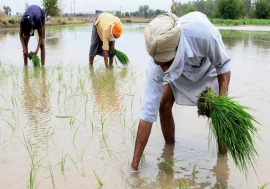
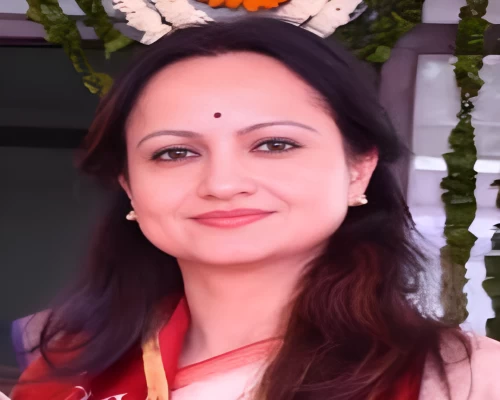
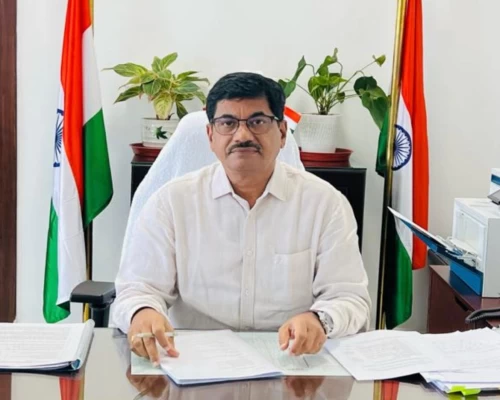
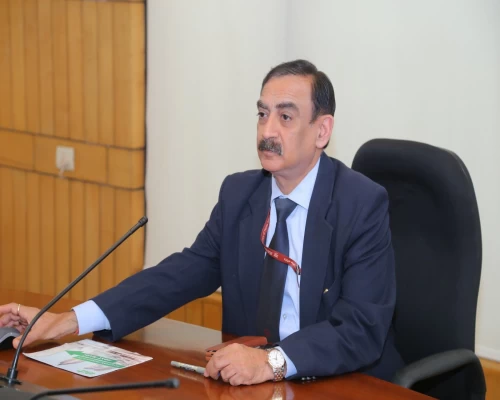
_500_x_400.webp)
